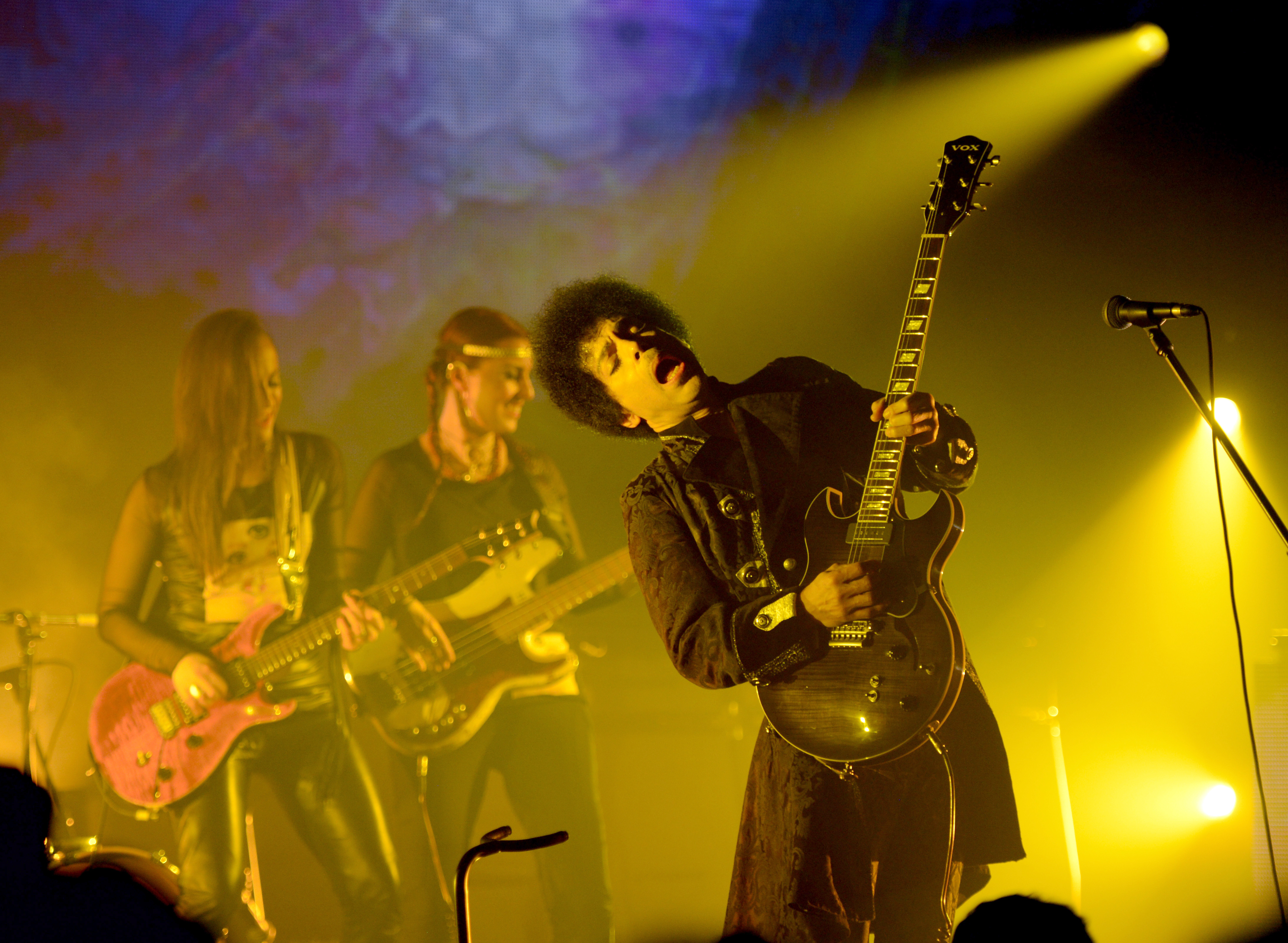John Roderick is the singer and songwriter responsible for Seattle’s The Long Winters. He is a regular columnist for Reverb and currently serving a tour as the blog’s guest editor.On a Sunday night off in Nashville a few years back, my bandmates and I took a field trip down to the Station Inn, a legendary roadhouse and country-music venue, to check out the Bluegrass Jam night. You might think a Bluegrass Jam would be a little outside our normal recreational ken, and you’d be right, but we like to experience foreign cultures while we’re on tour, and besides, there was no cover charge.We arrived to find that we were practically the only audience; everyone else had brought instruments and come to play. This was Nashville – some of these folks were session players and well-known gunslingers – but there were quite a few guys and gals in dusty overalls who seemed to have just arrived from the pages of The Grapes of Wrath.We sat in mute awe as 50 or so pickers and grinners moved around from small groups in the corners and back rooms to big gatherings on the main space, trading blistering, chicken-scratchin’ solos over standard chord progressions they all seemed to know instinctively. Every hillbilly instrument was represented, from stand-up bass to lap steel, banjo to fiddle. But the flat-picked acoustic guitar was predominant, and it had the dickens played out of it. What’s more, when someone laid an instrument down, someone else would quickly pick it up, so that throughout the night it became apparent that most everyone in the room could jam on any instrument.We played in Nashville the next night and attracted a nice crowd, but this casual session enthralled us. There’s nothing comparable to this in the Northwest; even though Seattle is a city full of great musicians, it could never field a group of 50 who all knew the same tunes and could effortlessly improvise and trade licks that way – unless they’re having some hoedowns after hours at Dusty Strings I don’t know about.We were humbled.The Long Winters have toured a lot over the nine years we’ve been a band, absorbing bits and pieces of the music scenes of most major American cities every chance we get. New York and L.A. don’t have much regional character anymore, but Chicago, Detroit, Nashville, Austin, and St. Louis have very definite qualities. It’s easy to feel that the individuality of American places is slowly being watered down by the homogenizing effects of Walmart and Project Runway, but much of the character of these cities is retained in the way their musicians play together, and even in the way they think about music. I get asked about Seattle a lot on tour, because Seattle is known as a music town. As I’ve reflected on our differences, one thing stands out: While some scenes are defined by the musicianship of their players, Seattle bands are judged on the caliber of their songs.When I described my experience at the Station Inn to some friends in Austin, they surprised me by expressing envy for Seattle. Texas musicians remind me of Nashville’s; every one I meet is a veritable encyclopedia of guitar, bass, fiddle, piano, and drums. While I bemoaned the fact that my Southern friends were so much more proficient at their instruments than anyone I knew in Seattle, they laughed and said that they wished people in their communities would spend a little less time jamming and a little more effort on writing good songs.Writing songs? Everyone I knew in Seattle was busy writing their hearts out. That’s part of our identity crisis: Half the musicians I know and admire started writing songs before they could even keep a beat or tell you the chords they were using. I routinely see shows in Seattle at which the musicianship is haphazard, bordering on embarrassing, but the songs themselves are ambitious enough to hold my attention even as my ears recoil. The premium here is on inventiveness, on tricky chords and interesting words. We snub great soloists and acrobatic improvisers in favor of original and daring songwriters. When we fail, we make some ungodly racket, but when we succeed, we often devise something unique and cool.The effortless chops and perfect execution of major-label rock, hallmarks of Nashville or L.A., are so conventional to Seattle ears that music from these places feels like the work of tribute bands, committees, or computer programs. We have plenty of gifted players here, don’t get me wrong, but our scene is really built around the premise that great musicianship only gets in the way of songwriting. That premise isn’t just an artistic pretension, it’s been borne out over the years by bands from Mudhoney to Modest Mouse.But it’s a dangerous idea, too. Writing songs before you master your instrument is a fantastic way to develop your own style, but too many young musicians cop a smugness about their lack of knowledge. It’s a local curse to assume that artistic genius makes practicing irrelevant, and a lot of talented people have ground out because the wider world didn’t think their bungling was quite so cute.Maybe I just wish I were a better player myself, and there’s a case to be made that the lackadaisicality I’m known for as a performer has held my band back on the national stage. I came up steeped in these distinctively Seattleite ideas, and still prefer live shows that are charming and daring to ones that seem too polished. I’ve been admonished more than a few times by show-business types that I should present my show with a little more seriousness as they back away slowly with suitcases full of cash under their arms.I guess that’s what we do, that’s the “Seattle Sound.” We work hard on our songs, and then present them with a little smirk. I admire those Nashville greats, but I’ve got to stick to what I know.
More Stories From This Author
Capitol Hill Block Party Artist Panel Series 2019
The Capitol Hill Block Party Artist Panel Series 2019 is free (no festival wristband required), all-ages, and takes place from…
By
Seattle Weekly • July 9, 2019 11:10 am
Golden Idols will release new EP
Seattle quartet returns with ‘Uneasy’
By
Seattle Weekly • June 24, 2019 5:30 pm
Travis Thompson, Wolf Parade headline Fisherman’s Village fest
The Everett Music Initiative festival, May 16-18 in Everett, will showcase more than 50 acts.
By
Evan Thompson • March 18, 2019 12:00 pm







